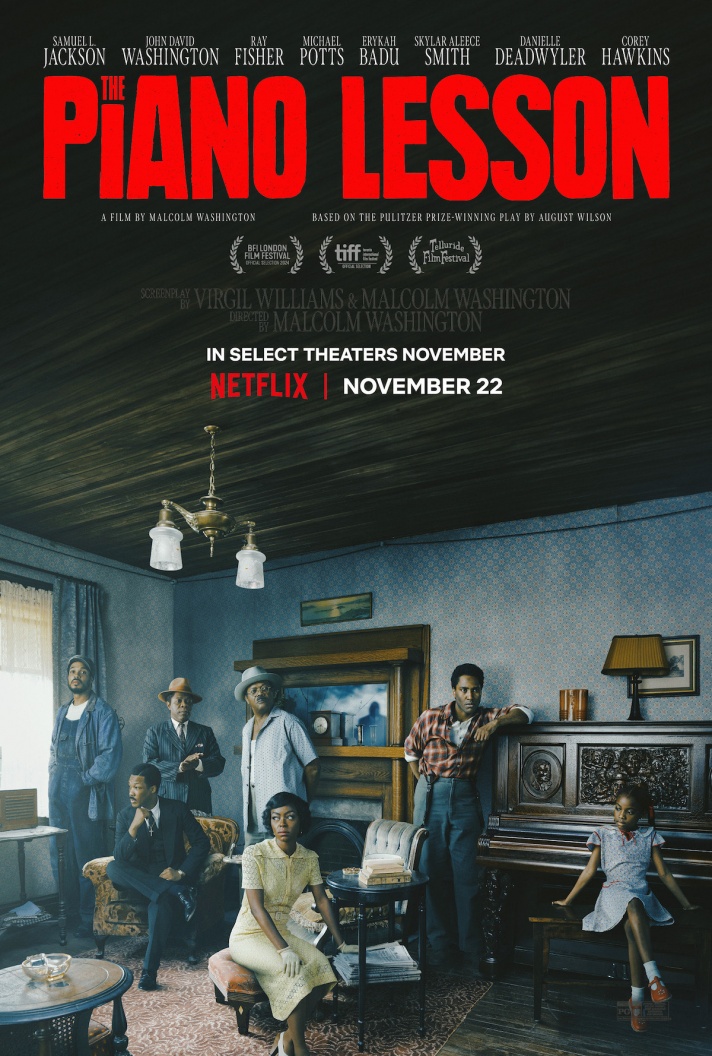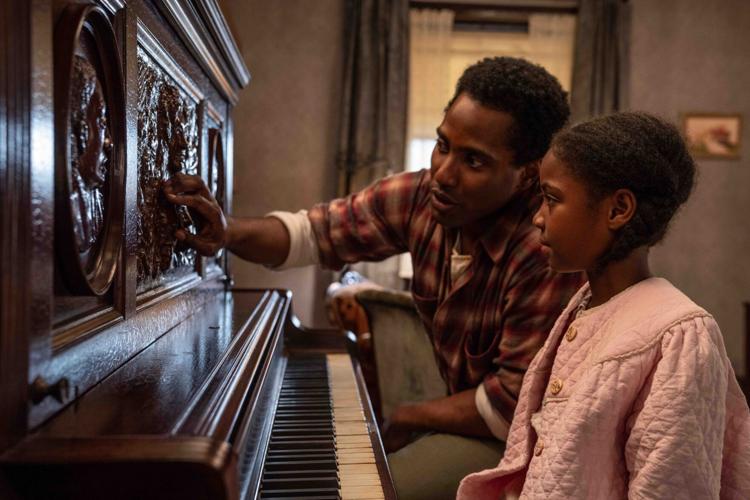The Piano Lesson Movie Review: Preserving the Souls of Black Folk

The Piano Lesson is a compelling narrative brought to life through both stage and screen. Originally a 1987 play by acclaimed playwright August Wilson, it stands as the fourth installment in The Pittsburgh Cycle, a ten-play series exploring the African-American experience across different decades. The play won the Pulitzer Prize for Drama in 1990, cementing its place in American theater. Inspired by Romare Bearden’s painting The Piano Lesson, Wilson crafted a powerful exploration of identity, history, and family dynamics through a strong female character.
The story revolves around the Charles family, centered in the household of Doaker Charles. At its heart lies an heirloom, a piano intricately carved with designs by an enslaved ancestor. The conflict arises between siblings Boy Willie and Berniece, who have opposing views on the piano’s fate. Boy Willie, a sharecropper, sees the piano as a means to buy Sutter’s land, where their family once toiled as slaves. Berniece, however, believes the piano is a sacred connection to their family’s past and refuses to part with it. The piano becomes more than an object; it symbolizes the weight of history and the tension between legacy and progress.
In 2024, The Piano Lesson was adapted into a film directed by Malcolm Washington, who co-wrote the screenplay with Virgil Williams. Featuring the cast that includes Samuel L. Jackson, John David Washington, and Danielle Deadwyler, the film brings August Wilson’s richly layered play to a new audience. Washington’s direction captures the spiritual and emotional resonance of the original work, touching onto themes of ancestral legacy, sacrifice, and the enduring impact of history on the present.
Here’s a quick historical fact: One of the important themes that caught my attention in the original film and the newer film was the powerful singing of the black men who were seated around the table. The men gathered around singing an old prison song called “Berta, Berta”. The song was sung by black men who were on the Parchman Farms. To understand this song we need to understand that back in the 1800’s when seven-eighths of the state’s convicts were black, and of these a substantial number had been sentenced to prison for ‘stealing a pig of the value of one dollar.’ In addition to stripping Black individuals of the right to vote, serve on juries, or testify against white individuals, African Americans faced mass arrests for trivial “offenses” like vagrancy, loitering, mischief, breaking curfew, making insulting gestures, mistreating animals, possessing firearms, cohabiting with white people, or failing to carry proof of employment—behaviors that were not deemed criminal when committed by white individuals.
“This plantation,” Du Bois writes, “owned now by a foreigner, was a part of the famous Bolton estate. After the war it was for many years worked by gangs of Negro convicts, —and black convicts then were even more plentiful than now; it was a way of making Negroes work, and the question of guilt was a minor one… the black folks say that only colored boys are sent to jail, and not because they are guilty, but because the State needs to eke out its income by their forced labor.”
“The plantation owners, as best they could, wanted Blacks to return to the same place as they had been as slaves,” according to historian David Oshinsky, author of Worse Than Slavery: Parchman Farm and the Ordeal of Jim Crow Justice.
An earlier adaptation exists in the form of a 1995 television film directed by Lloyd Richards. This version, starring Charles S. Dutton and Alfre Woodard, drew much of its cast from the original Broadway production and aired as part of the Hallmark Hall of Fame series. It remains accessible on streaming platforms like Tubi, offering another perspective on Wilson’s timeless story.

Despite its acclaim, the film adaptation has faced criticism from some social media users, particularly in the Christian community, labeling it as "demonic." This claim misrepresents the essence of the story. The Piano Lesson is not a horror film but a profound meditation on the spiritual and cultural significance of honoring one’s ancestry. It underscores the importance of preserving the memories of those who came before us, reminding viewers that materialism can never outweigh the value of our history and spiritual connections. The film and play serve as a reminder of the role our elders and ancestors play in shaping our identity. They highlight the spiritual dimension of legacy, urging audiences to remember and honor the sacrifices and lessons of those who came before. With its deeply moving narrative and layered performances, The Piano Lesson remains a masterpiece that bridges the realms of art, history, and spirituality.
